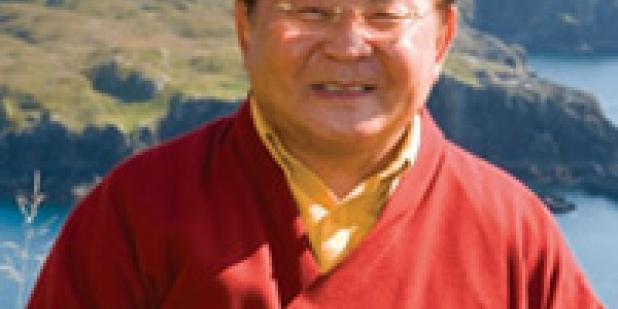Join us for a free one-day workshop for educators at the Japanese American National Museum, hosted by the USC U.S.-China Institute and the National Consortium for Teaching about Asia. This workshop will include a guided tour of the beloved exhibition Common Ground: The Heart of Community, slated to close permanently in January 2025. Following the tour, learn strategies for engaging students in the primary source artifacts, images, and documents found in JANM’s vast collection and discover classroom-ready resources to support teaching and learning about the Japanese American experience.
The Mind: A Tibetan Buddhist View
Sogyal Rinpoche will speak on the concept of transforming the mind in Tibetan Buddhism at Stanford University.
Where

In Buddhist teachings, mind is understood as the most important factor in determining our happiness or suffering. In fact, the entire teaching of the Buddha can be summed up in the single line: “to transform this mind of ours.” The key to transforming the mind is understanding what the essence or nature of mind really is, beyond the ordinary appearances of our thoughts and emotions. If we can recognize this most subtle and profound nature of our mind, it will have an extraordinary impact on how we relate to ourselves and others and so make an enormous positive contribution to the world at large.
Sogyal Rinpoche is the founder and spiritual director of Rigpa, an international network of Buddhist centres. He has been teaching for over thirty years and continues to travel widely in Europe, America, Australia, and Asia. He is the author of the well-known work The Tibetan Book of Living and Dying. More than two million copies have been printed in fifty-six countries and in thirty-one languages.
Born in Kham in Eastern Tibet, Sogyal Rinpoche was recognized at an early age as the incarnation of a great master and visionary saint of the nineteenth century, Tertön Sogyal Lerab Lingpa (1856-1926), a teacher to the thirteenth Dalai Lama. He received the traditional training of a Tibetan lama under the close supervision of Jamyang Khyentse Chökyi Lodrö, one of the most outstanding spiritual masters of the twentieth century, who raised Rinpoche like his own son.
He went on to study with many other great masters, of all schools of Tibetan Buddhism, especially Kyabjé Dudjom Rinpoche and Kyabjé Dilgo Khyentse Rinpoche. In 1971, Rinpoche went to England, where he also studied Comparative Religion at Cambridge University.
Featured Articles
Please join us for the Grad Mixer! Hosted by USC Annenberg Office of International Affairs, Enjoy food, drink and conversation with fellow students across USC Annenberg. Graduate students from any field are welcome to join, so it is a great opportunity to meet fellow students with IR/foreign policy-related research topics and interests.
RSVP link: https://forms.gle/1zer188RE9dCS6Ho6
Events
Hosted by USC Annenberg Office of International Affairs, enjoy food, drink and conversation with fellow international students.
Join us for an in-person conversation on Thursday, November 7th at 4pm with author Mike Lampton as he discusses his new book, Living U.S.-China Relations: From Cold War to Cold War. The book examines the history of U.S.-China relations across eight U.S. presidential administrations.




